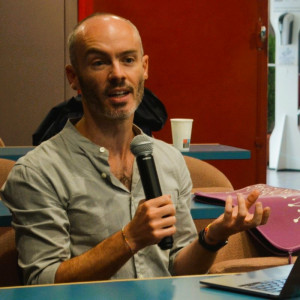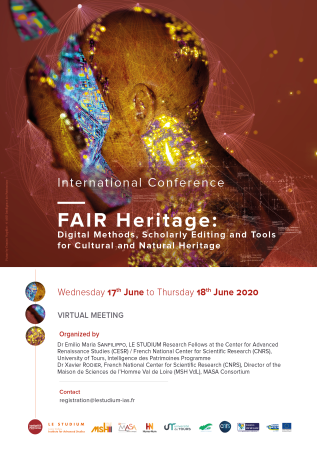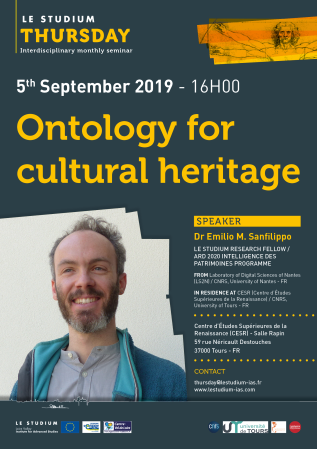Dr Emilio Maria Sanfilippo

From
Laboratory of Digital Sciences of Nantes (LS2N) / CNRS, University of Nantes - FR
In residence at
Centre for Advanced Studies in the Renaissance (CESR) / CNRS, University of Tours - FR
Host scientist
Prof. Benoist Pierre
PROJECT
Ontology-based data integration for the digital humanities
Applied ontology is an interdisciplinary research area at the intersection between computer science, artificial intelligence, linguistics, data science, logic, and philosophy. Its purpose is the development of models, called ontologies, to explicitly represent the worldview underlying human knowledge in order to make it accessible to computer systems. Ontologies are widely exploited across disparate application contexts, e.g., to organize and share data across multiple information systems while preserving their intended semantics, or to allow machines to reason over human knowledge by means of logical inference.
The goal of the research is to explore the application of ontologies in the Digital Humanities. In particular, his research addresses two main inter-related challenges. First, the use of formal models to represent domain experts’ views about critical assertions on literary or music works. Second, the development of an ontology for the integration of knowledge and data about artefacts and natural entities with cultural value. Notoriously, existing ontologies and international standards like CIDOC-CRM (ISO 21127) focus exclusively on artefactual data while leaving aside natural heritage. The latter, which includes entities like rivers, mountains, gardens, among others, cannot be however dismissed for their importance in various human practices.
By taking benefits from existing theories and methodologies in applied ontology like the DOLCE foundational ontology, OntoClean and OntoUML, he first propose an analysis of CIDOC-CRM to check its reliability with respect to ontological modelling principles, second its extension to deal with the modelling needs mentioned above.
Publications
Since the early days of ontology engineering, manufacturing is one of the main areas where ontologies have traditionally been applied (Guarino et al., 1997; Uschold and Grüninger, 1996). The interest in ontologies has been motivated, first, by the massive exploitation of computer-based technologies in manufacturing organizations, which need to manage and share data in a robust way, and second, by the need to harmonize different terminologies to facilitate communication. The two motivations are strictly related, since shared terminologies and models are needed to enable computer systems to interact effectively. In addition, in the new landscape of Industry 4.0 (Lu, 2017), guided and informed by big data and machine learning, ontologies find their place to organize the data upon which learning algorithms run.
Final reports
Institutions working in cultural heritage contexts have at their disposal large quantities of data, which need to be properly handled and classified to be used in applications, shared, and possibly even integrated. For these purposes to be achieved, shared conceptual models - in the form of ontologies - are needed. CIDOC-CRM is the reference standard for managing cultural heritage data. However, some of its modeling choices do not meet the modeling criteria of formal ontology. The purpose of this report is to document the research work done during my fellowship at Le Studium in 2019-2020 concerning the use ontologies for cultural heritage. This covers the ontological analysis of (some portions of) CIDOC and the development of an extension of the latter model for research purposes in the scope of scientific projects at the IPAT-CESR.


